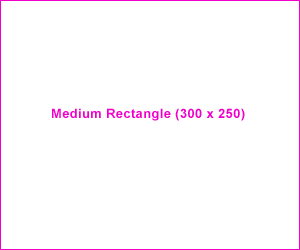White hat SEO

SEO Search Engine Optimization Search Engine Marketing Blackhat SEO Blackhat Marketing
 Despite the risk of ban, marketers still can go for black hat marketing because it helps in boosting up the page location in the search results. Search engine optimization (SEO) is the process of improving the visibleness of a web page in search engines via the "natural" or un-paid ("organic" or "algorithmic") search results. In general, the earlier (or higher on the page), and more frequently a site appears in the search results list, the more visitors it will receive from the search engine's users. Search Engine Optimization may target different kinds of search, including ikon search, local search, video search, academic search, news search and industry-specific vertical search engines. As an Internet marketing strategy, SEO considers how search engines work, what people search for, the actual search terms typed into search engines and which search engines are preferred by their targeted audience. Optimizing a website may involve editing its content and HTML and associated coding to both increase its relevance to specific keywords and to remove barriers to the indexing activities of search engines.
Despite the risk of ban, marketers still can go for black hat marketing because it helps in boosting up the page location in the search results. Search engine optimization (SEO) is the process of improving the visibleness of a web page in search engines via the "natural" or un-paid ("organic" or "algorithmic") search results. In general, the earlier (or higher on the page), and more frequently a site appears in the search results list, the more visitors it will receive from the search engine's users. Search Engine Optimization may target different kinds of search, including ikon search, local search, video search, academic search, news search and industry-specific vertical search engines. As an Internet marketing strategy, SEO considers how search engines work, what people search for, the actual search terms typed into search engines and which search engines are preferred by their targeted audience. Optimizing a website may involve editing its content and HTML and associated coding to both increase its relevance to specific keywords and to remove barriers to the indexing activities of search engines.
Search Engine Optimization may target different kinds of search, including image search, local search, video search, academic search, news search and industry-specific vertical search engines. As an Internet marketing strategy, SEO considers how search engines work, what people search for, the actual search terms typed into search engines and which search engines are preferred by their targeted audience. Optimizing a website may involve editing its content and HTML and associated coding to both increase its relevance to specific keywords and to remove barriers to the indexing activities of search engines. Promoting a site to increase the number of backlinks, or inbound links, is another SEO tactic. The descriptor "SEOs" can refer to "search engine optimizers," a term adoptive by an industry of consultants who carry out improvement projects on behalf of clients, and by employees who execute SEO services in-house. Search engine optimizers may offer Search Engine Optimization as a stand-alone service or as a part of a broader marketing campaign. Because operative SEO may say changes to the HTML source code of a website and website content, Search Engine Optimization tactics may be incorporated into site development and design. The term "search engine friendly" may be used to describe website designs, menus, content management systems, images, videos, shopping carts, and other elements that have been optimized for the end of search engine exposure. Another class of techniques, known as black hat SEO, search engine poisoning, or spamdexing, uses methods such as link farms, keyword stuffing and article spinning that take down both the connectedness of search results and the sound property of user-experience with search engines. Search engines look for sites that employ these techniques in order to remove them from their indices. Search Engine Optimization Webmasters and content providers began optimizing pages for search engines in the mid-1990s, as the first search engines were cataloging the late Web.
Search Engine Optimization
White hat methods are generally approved by search engines and follow their guidelines. Even though white hats won't always show results in short period of time, they tend to produce results that last a long time, whereas black hats forestall that their sites may eventually be banned either temporarily or permanently once the search engines observe what they are doing. Some of the Search Engine Optimization tactics include: keyword stuffing, hidden text and links, doorway and cloaked pages, link farming and blog comment spam. White hat marketing applies the white hat SEO techniques, also known as ethical SEO. The white hat marketing implies that all SEO activities are carried out while conforming to the guidelines, rules and policies of search engines. It is an ethical guideline since all site managers abide to the written, as well as unwritten rules and guidelines for SEO.
